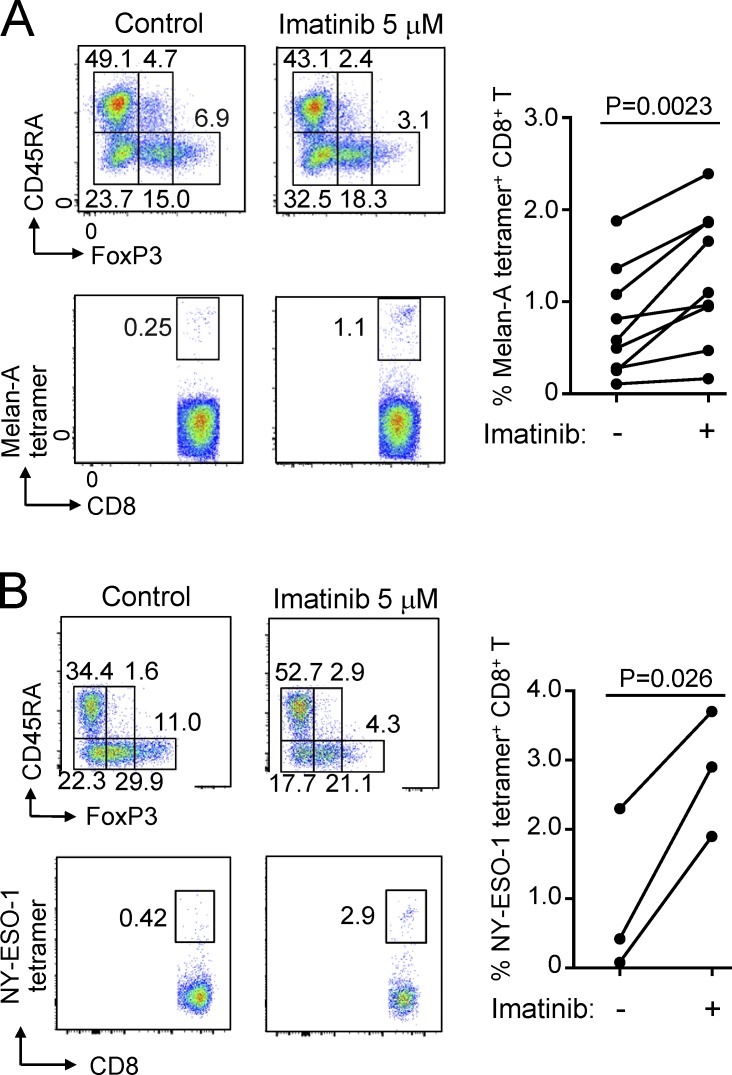Figure 4.
Imatinib reduces eT reg cells and augments antitumor immune responses in vitro. (A) In vitro imatinib-dependent induction of tumor antigen–specific CD8+ T cells from PBMCs of healthy individuals. PBMCs from HLA-A*0201+ healthy individuals (n = 9) were stimulated with Melan-A26-35 peptide with/without 5 µM imatinib. Reduction of eT reg cells (top) and Melan-A–specific CD8+ T cell induction detected by MHC/Melan-A peptide tetramers (bottom). Representative result of three independent experiments. CD4+ and CD8+ T cells were separately analyzed by FACS. Summary of Melan-A–specific CD8+ T cell induction from nine healthy donors (right). (B) In vitro imatinib-dependent induction of tumor antigen–specific CD8+ T cells from PBMCs of cancer patients. PBMCs from two HLA-A*0201+ and one HLA-Cw*0304+ melanoma patients were stimulated with NY-ESO-1157–165 and NY-ESO-192–100 peptides, respectively, with/without 5 µM imatinib (n = 3). Decrease of eT reg cells (top) and increase of NY-ESO-1–specific CD8+ T cells detected by MHC/NY-ESO-1 peptide tetramers (bottom). Representative result of three independent experiments. CD4+ and CD8+ T cells were separately analyzed by FACS. Summary of NY-ESO-1–specific CD8+ T cell induction from three melanoma patients (right). Statistical significance was assessed by Student’s two-tailed paired t test in A and B.

